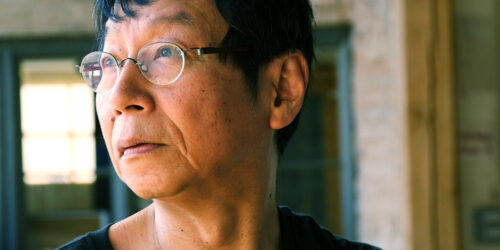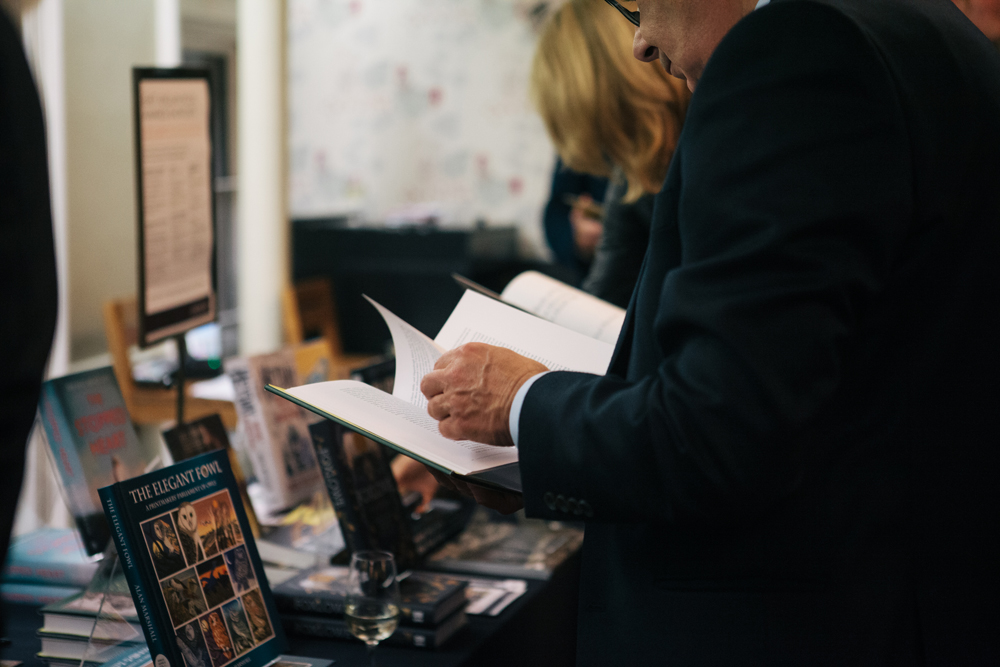
The shortlist for the coveted East Anglian Book Awards 2020 has been revealed. With over 100 books submitted from more than 60 publishers the judges have whittled down the list to just 3 entries per category.
Now in their thirteenth year, the awards celebrate writing talent within the East of England. The East Anglian Book Awards are a partnership between Jarrold, the Eastern Daily Press, and the National Centre for Writing, supported by UEA Faculty of Arts & Humanities and the PACCAR Foundation.
![]()

![]()
![]()
![]()
Chris Gribble, Chief Executive of the National Centre for Writing, said:
‘This is the thirteenth year of the East Anglian Book Awards, and perhaps because all the real difficulties that 2020 has brought, it has never been more important to celebrate outstanding writing and publishing in East Anglia. We’ve received over 100 books from more than 60 publishers, proof that the creativity and talent of our region is truly deep-rooted. We’re delighted by the shortlist that the judges have selected this year – these are stories and voices that give life and voice to East Anglia’s past, present and future.’
Caroline Jarrold, Community Affairs Adviser for Jarrold, said:
‘Once again, we have been excited to see the number, variety and quality of entries to the East Anglian Book Awards. Perhaps this year, where we are all affected by the Covid-19 crisis, reading books is even more important to many, to distract and inspire. I’m really looking forward to reading the short-listed books and hope that many others will join in and be curious about the titles connected to this wonderful part of the country.’
East Anglian Book Awards 2020 shortlist
Biography & Memoir
Judged by Alex Hammond, University of East Anglia
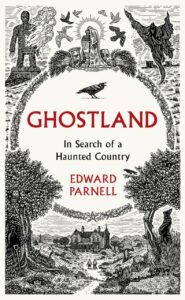 Ghostland: In Search of a Haunted Country by Edward Parnell (HarperCollins)
Ghostland: In Search of a Haunted Country by Edward Parnell (HarperCollins)
Ghostland is Parnell’s moving exploration of what has haunted our writers and artists – and what is haunting him. It is a unique and elegiac meditation on grief, memory and longing, and of the redemptive power of stories and nature.
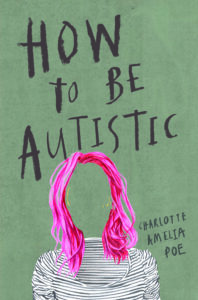 How To Be Autistic by Charlotte Amelia Poe (Myriad Editions)
How To Be Autistic by Charlotte Amelia Poe (Myriad Editions)
As we follow Charlotte’s journey through school and college, we become as awestruck by their extraordinary passion for life as by the enormous privations that they must undergo to live it. From food and fandom, to body modification and comic conventions, Charlotte’s experiences through the torments of schooldays and young adulthood leave us with a riot of conflicting emotions: horror, empathy, despair, laugh-out-loud amusement and, most of all, respect.
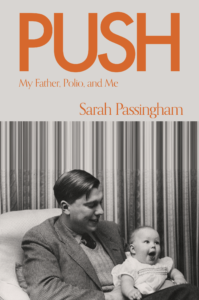 Push: My Father, Polio, and Me by Sarah Passingham (Gatehouse Press)
Push: My Father, Polio, and Me by Sarah Passingham (Gatehouse Press)
In 1952 three things happened to Push Pulman: he narrowly missed out on qualifying to row in the Olympics; he married Diana; and six weeks later he contracted polio. His life was changed forever. This is his story. Push the athlete paralysed by polio and tuburculosis. Push the engineer who believed in finding a solution whatever the problem. Push the family man whose strength of character was matched only by his incredible physical strength.
Fiction
Judged by Amy Waller, University of East Anglia
 The Choice by Claire Wade (Orion)
The Choice by Claire Wade (Orion)
Imagine a world where… everything you ate was monitored by the government. Every step you took was counted. Your children were weighed every day at school. Neighbours reported on neighbours and no one was safe from judgement. Sugar was illegal, and baking was a crime. Imagine if that world was here… What would you do?
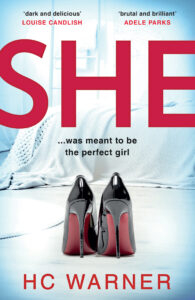 She by HC Warner (HarperCollins)
She by HC Warner (HarperCollins)
SHE’s everything he dreamed of, isn’t SHE? Ben can’t believe his luck when Bella walks into his life, just when he needs her most. Sexy, impulsive and intelligent, Bella is everything he ever wanted. And Bella wants him. All to herself.
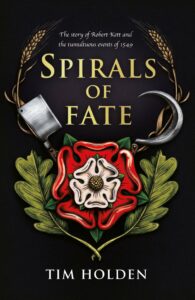 Spirals of Fate by Tim Holden (Nielsen)
Spirals of Fate by Tim Holden (Nielsen)
Prepare to be gripped by a cast of characters that will have you rooting for them, and against them, as they each navigate one unruly summer. This riveting story effortlessly captures both the hardships of daily life and the political realities of Tudor England.
General Non-Fiction
Judged by George McKay, University of East Anglia
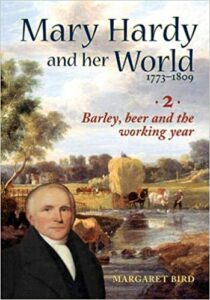 Mary Hardy and her World 1773-1809: Volume 2, Barley, beer and the working year by Margaret Bird (Burnham Press)
Mary Hardy and her World 1773-1809: Volume 2, Barley, beer and the working year by Margaret Bird (Burnham Press)
An extremely hardworking workforce enabled the Hardys to prosper. We watch the same man plough the soil, sow the seed, harvest it, work at malting and brewing night and day, and deliver the beer to the family’s public houses. There was job satisfaction in seeing a product through from start to finish, but at a cost.
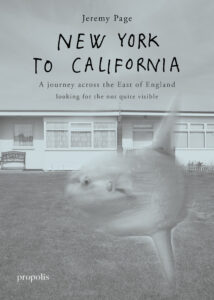 New York to California by Jeremy Page (Propolis)
New York to California by Jeremy Page (Propolis)
Novelist, traveller, scriptwriter, photographer: Jeremy Page is a man with a broad view of wide horizons. But on approaching middle age, he experienced a calling to return to the place which he – and his ancestors – had called home. Like the migratory eel, retracing a route back to somewhere it had once fought to leave, he decided to take a long, slow journey through a landscape both familiar but also separated by time and distance from his current life.
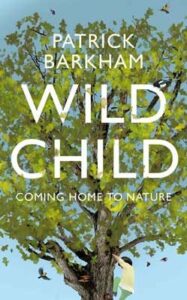 Wild Child by Patrick Barkham (Granta)
Wild Child by Patrick Barkham (Granta)
From climbing trees and making dens, to building sandcastles and pond-dipping, many of the activities we associate with a happy childhood take place outdoors. And yet, the reality for many contemporary children is very different. In this timely and personal book, celebrated nature writer Patrick Barkham draws on his own experience as a parent and a forest school volunteer to explore the relationship between children and nature.
History & Tradition
Judged by Stephen Church and Rebecca Pinner, University of East Anglia
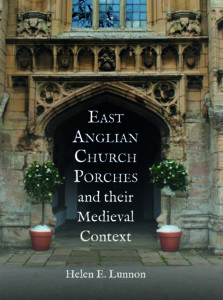 East Anglian Church Porches and their Medieval Context by Helen E. Lunnon (Boydell and Brewer)
East Anglian Church Porches and their Medieval Context by Helen E. Lunnon (Boydell and Brewer)
The church porches of medieval England are among the most beatiful and glorious aspects of ecclesiastical architecture; but in comparison with its stained glass, for example, they have been relatively little studied. This book, the first detailed study of them for over a century, gives new insights into this often over-looked element.
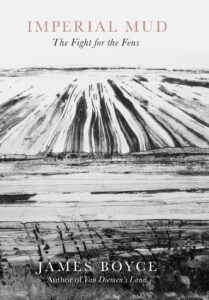 Imperial Mud: The Fight for the Fens by James Boyce (Icon Books)
Imperial Mud: The Fight for the Fens by James Boyce (Icon Books)
Between the English Civil Wars and the mid-Victorian period, the proud indigenous population of the Fens of eastern England fought to preserve their homeland against an expanding empire. Masterfully argued and imbued with a keen sense of place, Imperial Mud reimagines not just the history of the Fens, but the history and identity of the English people.
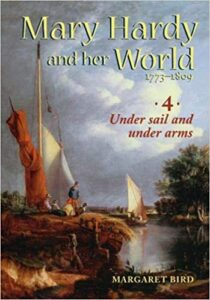 Mary Hardy and her World 1773-1809: Volume 4, Under sail and under arms by Margaret Bird (Burnham Press)
Mary Hardy and her World 1773-1809: Volume 4, Under sail and under arms by Margaret Bird (Burnham Press)
The Hardys as farmers and brewers, their workforce and their wider circle were constantly on the move: itinerancy was a way of life. What little opportunity they had for leisure pursuits in the form of clubs, fairs and the playhouse is described in this volume. Hundreds of illustrations, in black and white and full colour, accompany the text. Meticulous sidenotes elaborate on sources; the extensive index serves as a research aid. Part of a four-volume set, the book nonetheless stands on its own.
The Mal Peet Children’s Award
Judged by B.J. Epstein, University of East Anglia
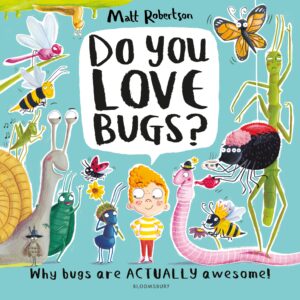 Do You Love Bugs? by Matt Robertson (Bloomsbury)
Do You Love Bugs? by Matt Robertson (Bloomsbury)
Crawly! Hairy! Maybe a bit scary? Snails slime upside down. Eeek! Worms can somersault and butterflies smell like cake. YUM. Wait, don’t eat them… Because bugs are truly BRILLIANT! Matt Robertson’s quirky text and sweet yet hilarious illustrations show exactly why minibeasts can be truly awesome in their own unique way.
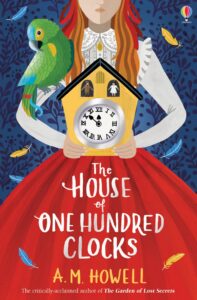 The House of One Hundred Clocks by A.M. Howell (Usborne)
The House of One Hundred Clocks by A.M. Howell (Usborne)
Helena and her parrot, Orbit, are swept off to Cambridge when her father is appointed clock-winder to one of the wealthiest men in England. There is only one rule: the clocks must never stop. But Helena discovers the house of one hundred clocks holds many mysteries; a ghostly figure, strange notes and disappearing winding keys Can she work out its secrets before time runs out?
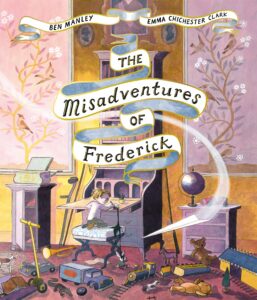 The Misadventures of Frederick by Ben Manley, illustrated by Emma Chichester Clark (Two Hoots)
The Misadventures of Frederick by Ben Manley, illustrated by Emma Chichester Clark (Two Hoots)
In a mansion surrounded by lakes and forests, Frederick is bored. He leads a very sheltered life: and when Emily invites him to play outside he has no choice but to refuse – what if he hurts himself? Much better to stay safely indoors. But Emily is not one to take no for an answer . . . A series of brilliantly funny and evocative letters between Frederick and Emily tell this unique story which weaves together the colourful, adventurous world of Emily with Frederick’s drab life of boredom and safety.
Poetry
Judged by Alison Winch, University of East Anglia
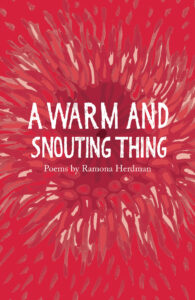 A warm and snouting thing by Ramona Herdman (The Emma Press)
A warm and snouting thing by Ramona Herdman (The Emma Press)
There are tales of teenage self-confidence and adultery averted – but there is space here, too, for a settled life with a salad spinner, and a long-term lover’s belly. The poet skilfully negotiates the twin pulls of the familiar and the unknown, generating a forceful and compelling charge from the energy of flight resisted.
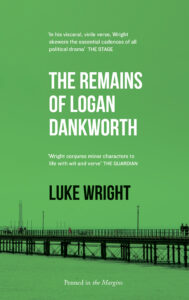 The Remains of Logan Dankworth by Luke Wright (Penned in the Margins)
The Remains of Logan Dankworth by Luke Wright (Penned in the Margins)
In the third of his trilogy of powerful political verse plays, Luke Wright examines the loss of trust in the age of Brexit.
Logan Dankworth, columnist and Twitter warrior, grew up romanticising the political turmoil of the 1980s. Now, as the EU Referendum looms, he is determined to be in the fray of the biggest political battle for years.
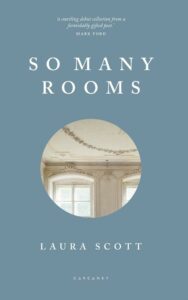 So Many Rooms by Laura Scott (Carcanet)
So Many Rooms by Laura Scott (Carcanet)
The Guardian’s Poetry Book of the Month August 2019
So Many Rooms, the debut collection from Geoffrey Dearmer Prize-winning poet Laura Scott, moves with its own lyric strangeness, opening up different rooms and also different worlds.
Of the 18 shortlisted titles, ten are from independent publishers.
They will now be considered for the Book by the Cover Award, judged by members of the East Anglian Writers. The winning book from each category will be considered by a final judging panel of representatives from Jarrold, the EDP, National Centre for Writing and University of East Anglia. One of these six finalists will go on to win the Book of the Year Award with prize money of £1,000, courtesy of the PACCAR Foundation.
Archant’s Emma Lee, who is one of the judges, said:
‘A huge congratulations to all the authors who have made the shortlist. It’s an honour to have been asked to be one of the judges helping to select the 2020 East Anglian Book of the Year and I can’t wait to read the finalists.’
The category winners, Book by the Cover Award, Exceptional Contribution Award and the Book of the Year Award will be announced in the Eastern Daily Press on 31 October.
To qualify for the East Anglian Book Awards, works must be set largely in East Anglia or be written by an author living in the region – which is defined as Norfolk, Suffolk, Essex and area of Fenland District Council.
Books must have been physically published for the first time between 27 July 2019 and 24 July 2020 – and must have been commercially available in physical bookshops.
Discover more about the category winners – as well as the identity of the winner of the East Anglia Book of the Year Award – at our special online event >>






